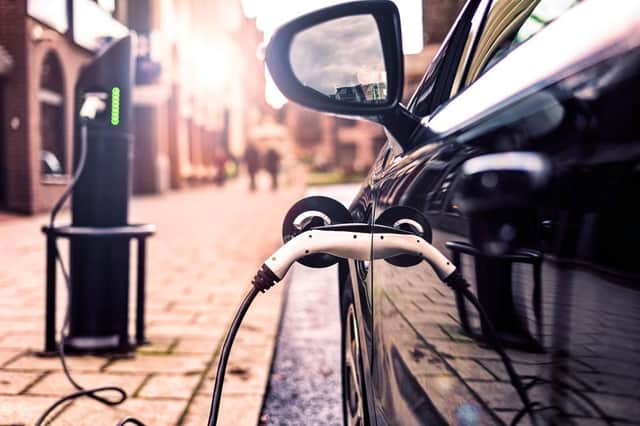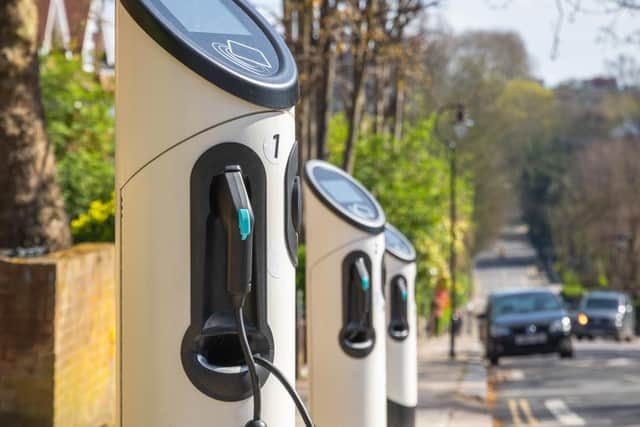UK has ‘mountain to climb’ in delivering 2030 petrol ban


The UK Government lacks any clear plan on delivering its proposed ban on new petrol and diesel cars, according to an influential group of MPs.
The Public Accounts Committee has said the country faces a “huge challenge” in making the transition away from internal combustion vehicles in the proposed timeline, with the cost of EVs and availability of public charging key issues, along with the loss of £30 billion a year in fuel duty.
Advertisement
Hide AdAdvertisement
Hide AdThe Government intends to ban the sale of new petrol and diesel vehicles from 2030, with hybrid sales due to stop in 2035.


However, the PAC report said that the upfront purchase price of most EVs was “still too high” for many motorists. It pointed out that just 13 of the electric models on sale in the UK right now cost less than £30,000.
Last year around 11 per cent of all new car registrations were ultra-low emissions and the report warned: “Getting from this level to 100% as new petrol and diesel cars are phased out is a huge challenge.”
Meg Hillier MP, chair of the committee, said: “The Government has a mountain to climb to get to all new cars in the UK emitting zero carbon in the next 14 years: to convince consumers and make the cars appealing, to make the car industry environmentally and socially compliant, to build the necessary infrastructure to support this radical shift and possibly biggest of all, to wean itself off carbon revenues. Yet once again what we’ve got is a Government throwing up a few signs around base camp - and no let-up in demand for oversized, petrol- guzzling vehicles.”
Advertisement
Hide AdAdvertisement
Hide AdAlongside the barrier of high purchase price, the committee warned that issues remained around public charging infrastructure and said it was “not convinced” the Government is on track.
It highlighted a lack of detail on how many chargers are needed to keep pace with the adoption of EVs, an uneven provision of chargers that could leave rural areas and areas with no off-street parking at a disadvantage, and the relatively high cost of public charging compared with at-home charging.
The report said that the Government also lacked clarity on broader issues including the impact of the move on demand for power, workforce training for those servicing and maintaining EVs.
However, Meg Hillier said the biggest obstacle could be getting the Government to “wean itself off carbon revenues”. The Treasury currently collects around £30bn a year in car tax, fuel duty and VAT on petrol and diesel which will rapidly diminish as buyers move to battery powered vehicles.
Advertisement
Hide AdAdvertisement
Hide Ad“This isn’t about more targets with no plan behind them inevitably getting missed - it’s about averting the real-world challenges that are bearing down on all of us. The Government needs to get the country behind it and lead the way in the global race against climate change.”
Mike Hawes, chief executive of the Society of Motor Manufacturers and Traders, said a "comprehensive and holistic plan” was needed for the UK to achieve the 2030 target.
He added: "That plan must convince consumers to make the switch, it must provide the incentives that make electric cars affordable for all, and it must ensure recharging is as easy as refuelling."
A Government spokeswoman said: "We've got a highly ambitious and world-leading approach to increasing the uptake of zero-emission cars, and the progress we're making in this area will help us to meet our targets.
Advertisement
Hide AdAdvertisement
Hide Ad"Already, we're investing £2.8 billion in helping industry and drivers make the switch, and will continue our work to install thousands of chargepoints and boost the development of new technologies to meet our goals."